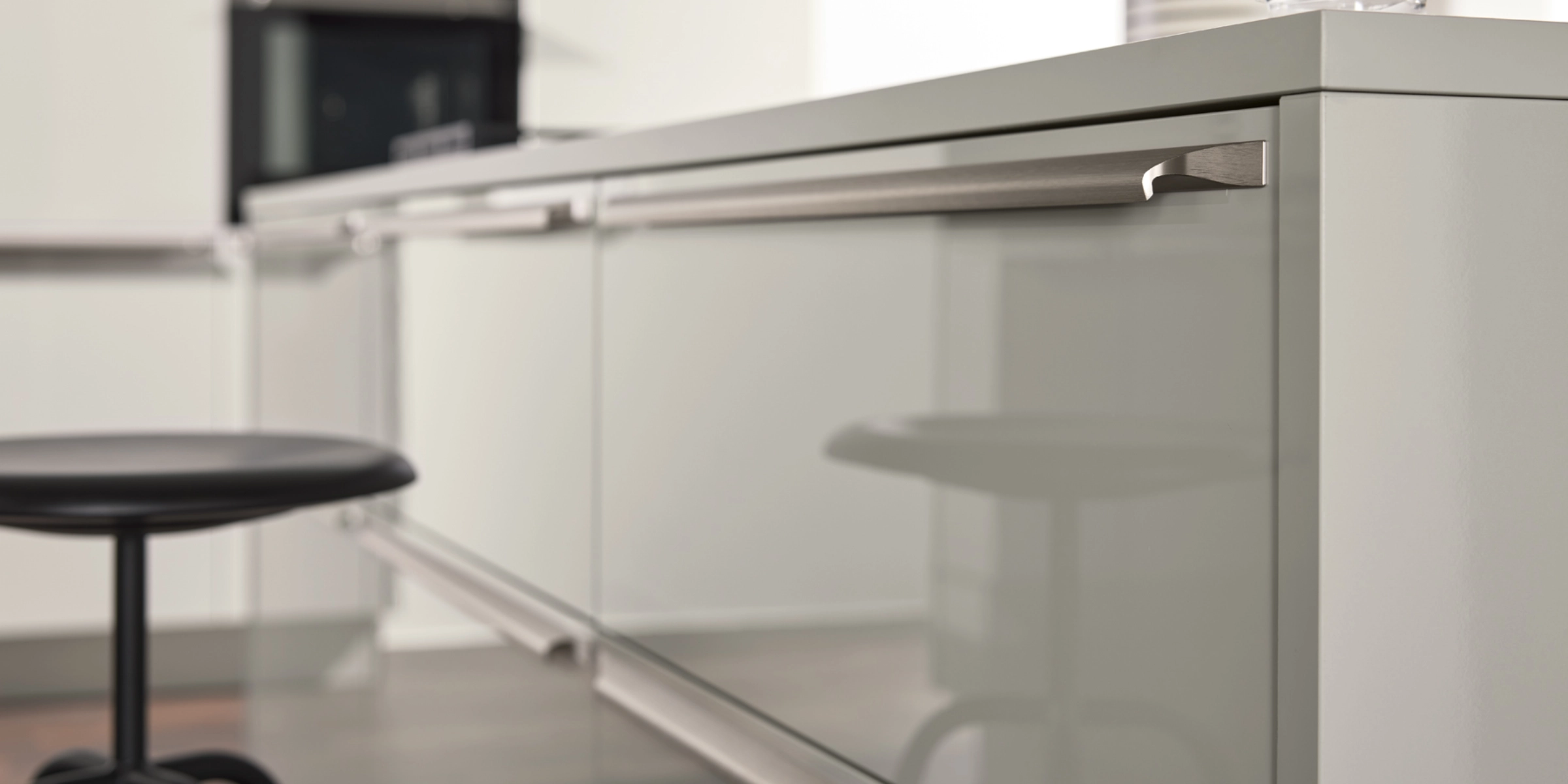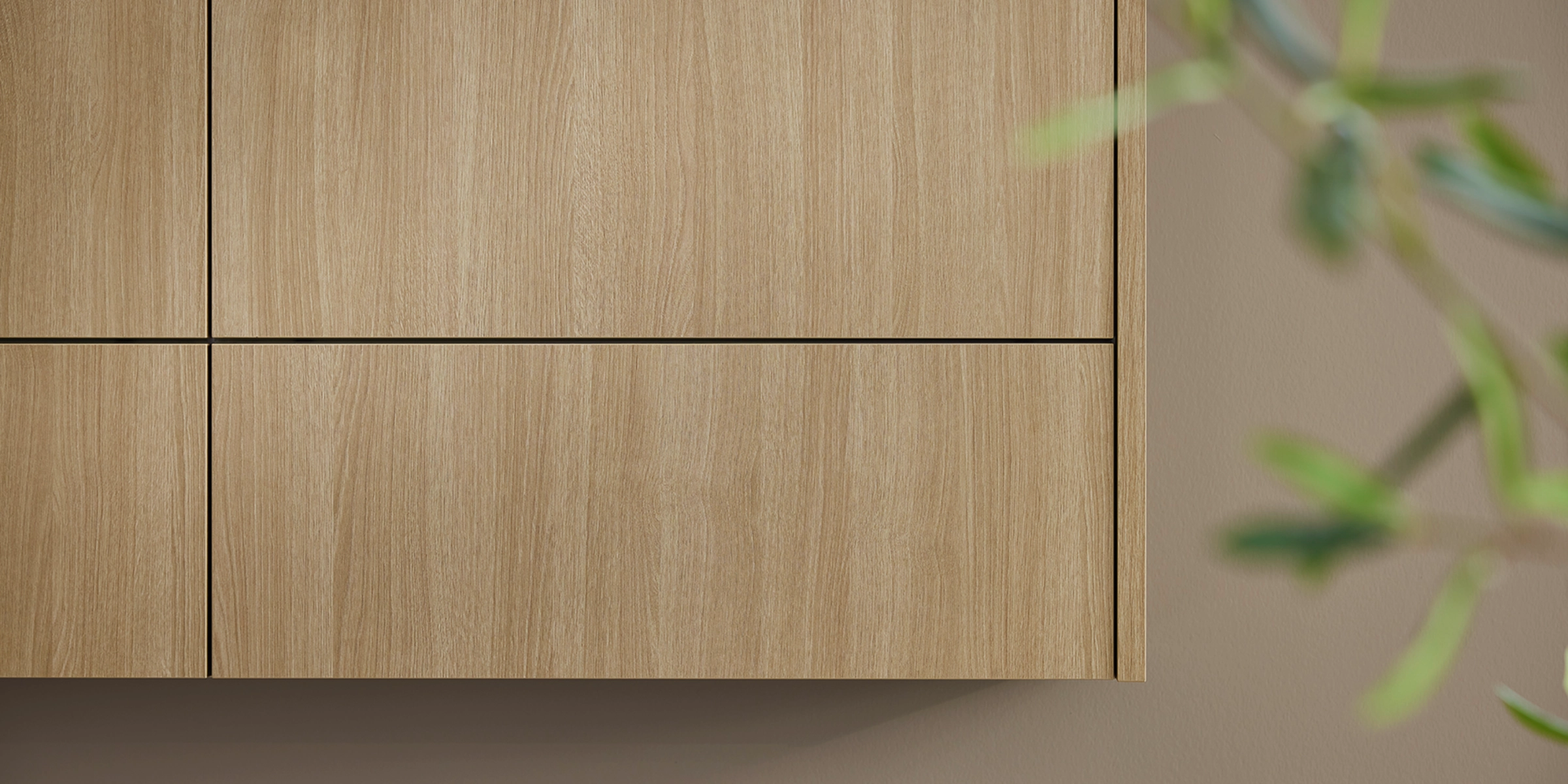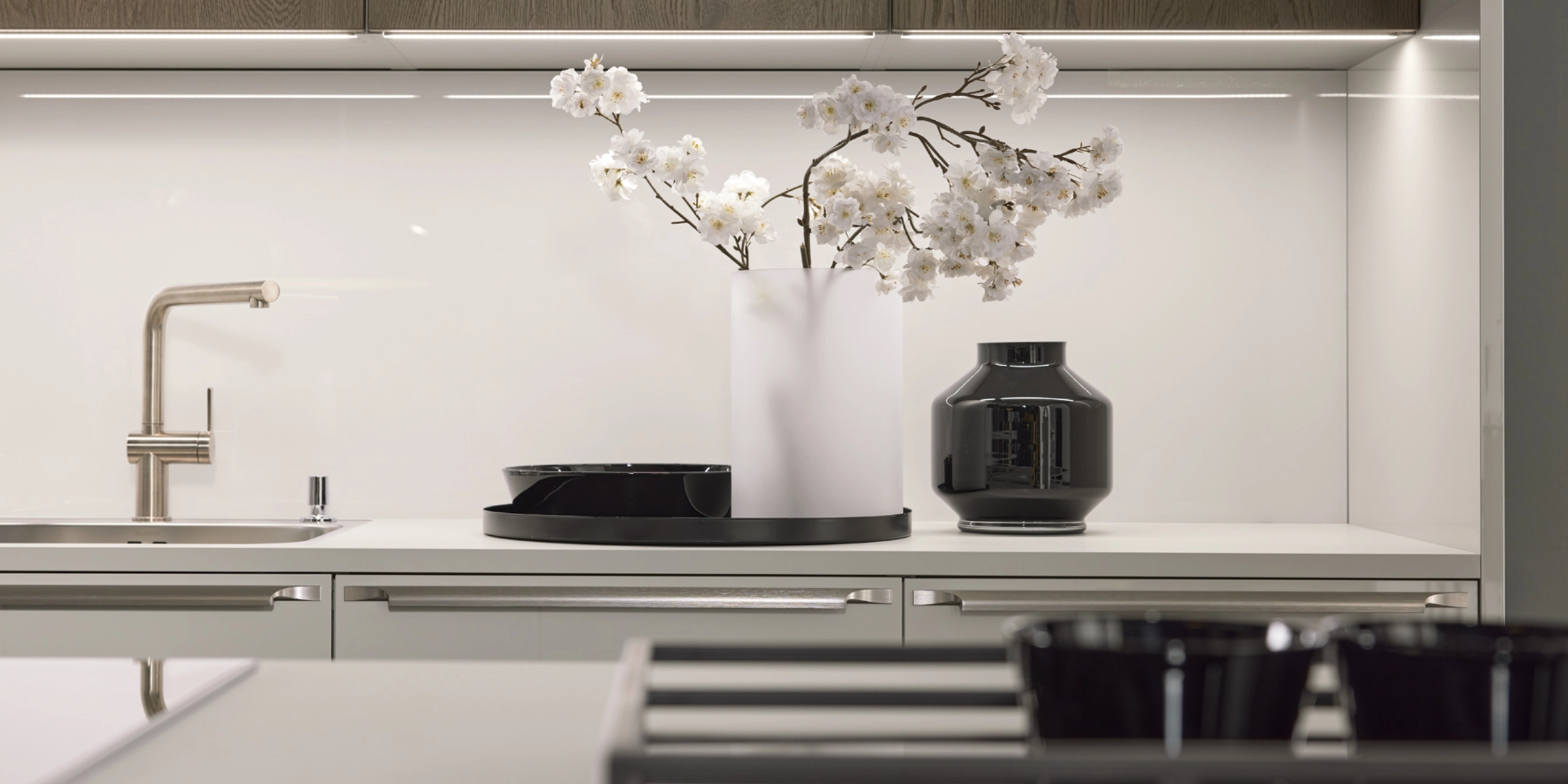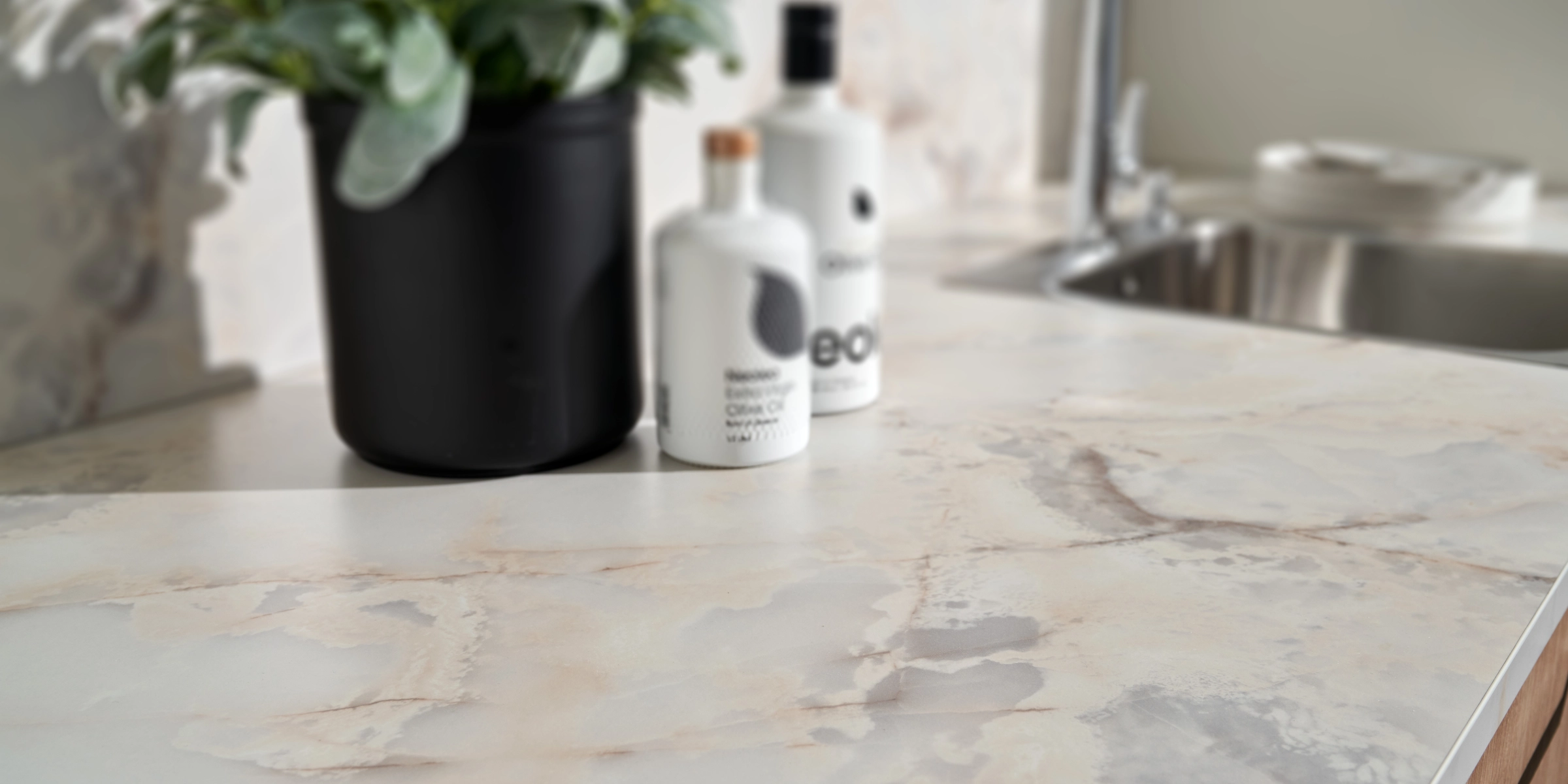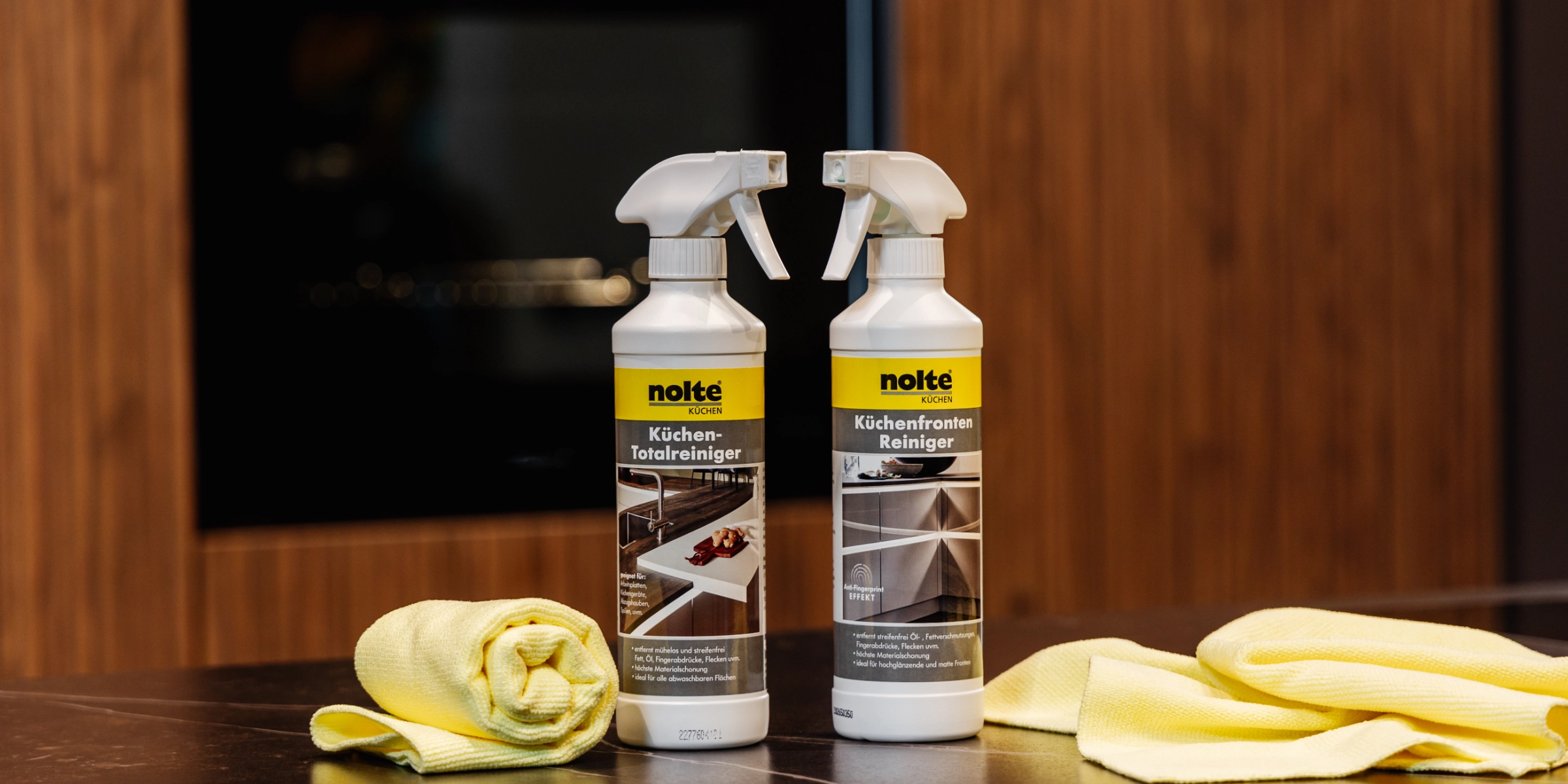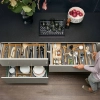Cleaning and maintaining worktops and fronts correctly
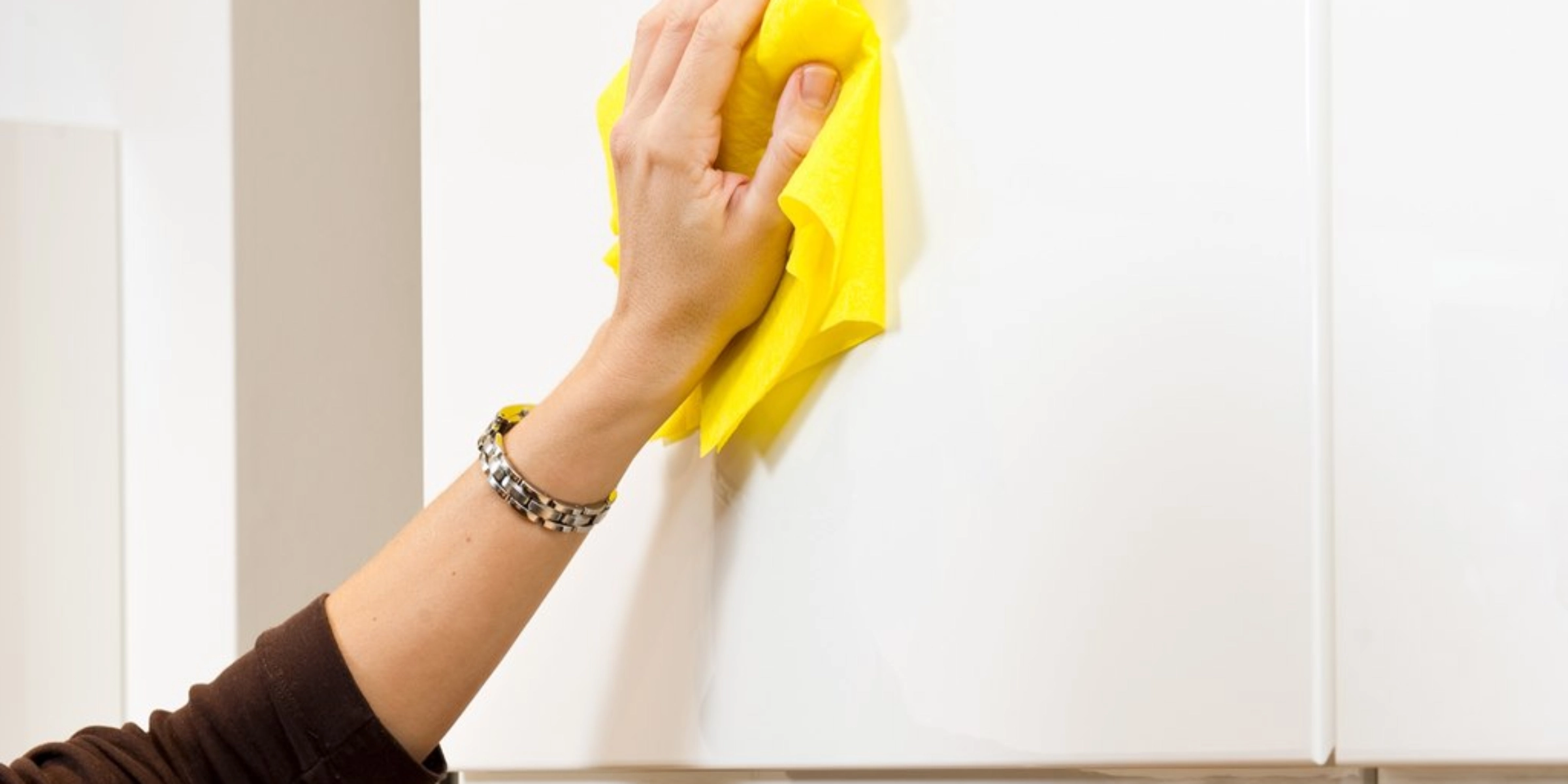
Water vapour, cooking grease, staining foods – things get busy in the kitchen. Cooking fumes and dust form a particularly close bond here. That's why we've equipped our furniture with high-quality, easy-care surfaces featuring special protection, which you can easily keep clean. But caution: harsh liquid cleaners, abrasive cleaning agents, polishes, waxes, solvents, vinegar- and steam cleaners are off-limits, as are acidic and silicone-based cleaning agents. Nitro- and synthetic resin thinners also cause damage and invalidate warranty claims. Here you can read how to properly care for worktops and fronts.
Less is more
The rule of thumb is: Keep it simple. If you must use something – pick a mild liquid cleaner and an absolutely clean, soft, preferably new cloth or sponge. Why new? Because dust and other fine particles from previous cleaning tasks act like sandpaper and may damage even the best-sealed surfaces. Moisten your cleaning tool well, but avoid making it wet. Moisture can penetrate handle edges or borders, causing the wood to swell. By the way, this basic cleaning guideline applies equally to the inside of cabinets as it does to handles. As always: Exceptions prove the rule, so now let’s take a closer look at individual surfaces and their special characteristics.
Plastic fronts
It can be so easy: warm water with a little dishwashing liquid is sufficient to clean plastic surfaces. Use a microfiber cloth for this. Whether it is suitable can be determined by looking at the packaging. Moisten the cloth thoroughly before wiping the fronts with it. For stubborn stains, you can use commercially available spirit. However, test it first on an inconspicuous spot.
Lacquer and laminate
Even fronts with lacquer and laminate should never be cleaned dry. Here, we refer to our surfaces made of genuine or UV lacquer, glass or lacquer laminate, but also our cement and metal fronts with original materials, as these are sealed with a layer of lacquer. In this case, the product of choice is specialized cleaner for kitchen fronts, but in no case glass cleaner!
Fronts with wood
Our wooden fronts are also sealed with lacquer, but less demanding regarding cleaning agents. Regardless of whether solid or veneered: A slightly damp cloth is sufficient. Always wipe in the direction of the grain, remove dirt immediately to prevent drying, and afterwards rub the fronts dry. Then, moisture cannot penetrate edges or profiles.
Glass fronts and glass niches
Whether glossy or matte: Use a glass or neutral cleaner in combination with a soft sponge or (leather) cloth. With satin glass, grease and oil can leave stains with shadow effects. If the glass cleaner does not help, try using a branded product designed for ceramic glass cooktops that is not too abrasive. A moistened magic eraser also helps when gently rubbed over the glass.
Worktops
Our worktops have a durable laminate surface. Nevertheless, cooking can leave marks over time. For cleaning, use a microfibre cloth, water and detergent. You can tackle more stubborn stains using a dirt eraser – alternatively moistened with specialised kitchen cleaners – applying gentle pressure. However, always treat large areas at a time. Otherwise, the treated area will stand out visually, as the eraser also reaches the deeper textures of the structured surface.
On the safe side with care sets
You don't feel like reading through the many labels on products in your drugstore? No problem! To make it even easier for you, we at Nolte Küchen have developed special sets tailored to the cleaning and care of fronts and worktops. This way, you can always be sure to use the right product. You can purchase the sets from your kitchen specialist dealer. Each set includes a specifically matched cleaning agent, cloths and a dirt eraser.
Cleaning of kitchen fronts
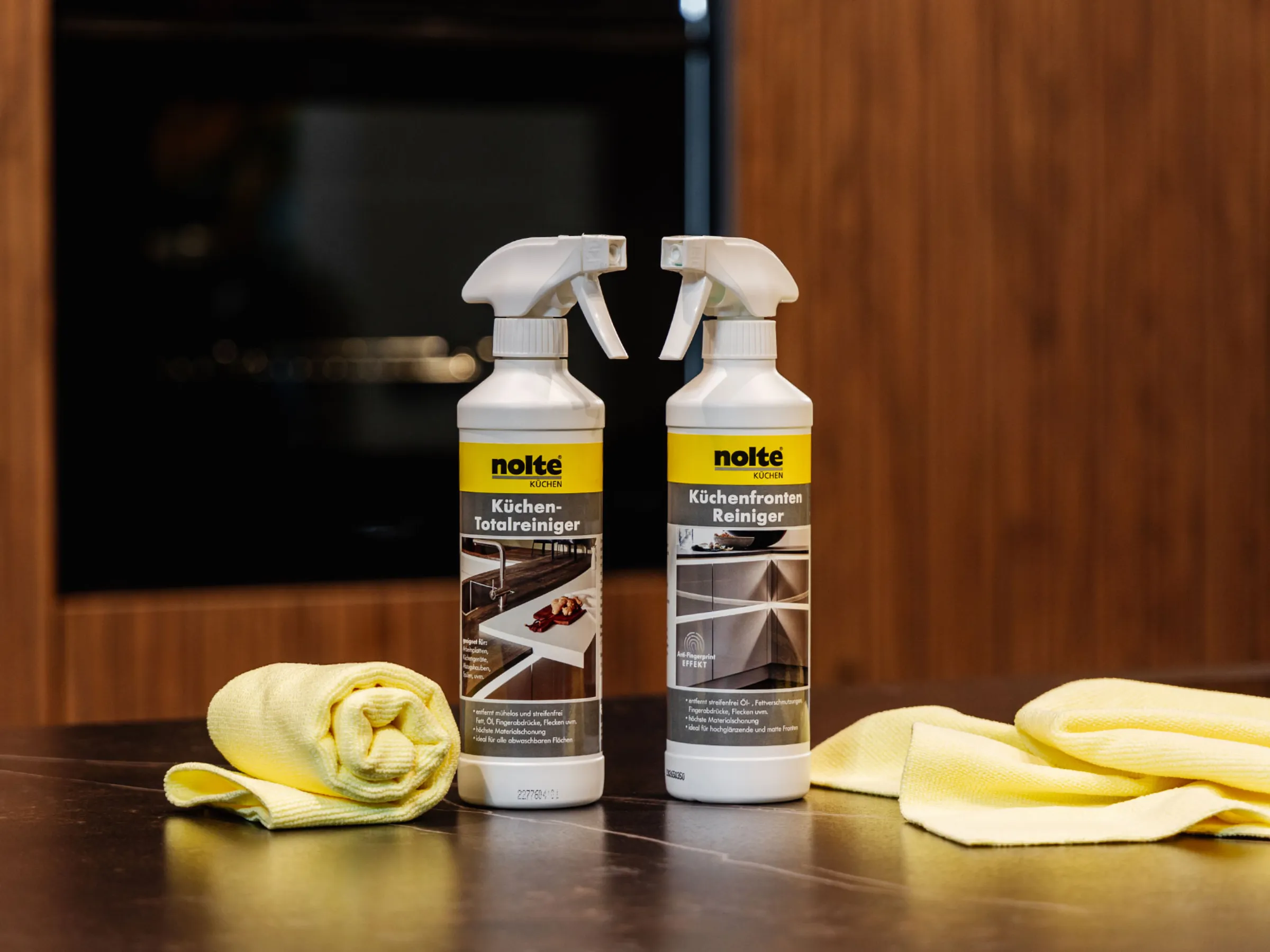
Where can I get Nolte Küchen cleaners?
Cleaning and care instructions
Tip:
You can find more information on how to keep your kitchen surfaces looking beautiful for a long time in the care and operating instructions handed to you by the installers during assembly. Here you will find useful tips for everyday use.
Download
The care instructions and instructions for use from Nolte Küchen are a comprehensive guide for the daily use of your kitchen - from optimum cleaning of various surfaces to proper operation and important safety instructions. Whether lacquered fronts, wood, glass or stainless steel: you will find specific recommendations for each material to help maintain quality and functionality in the long term.
Discover tips and tricks
Discover many more tips and tricks in the Nolte magazine.


